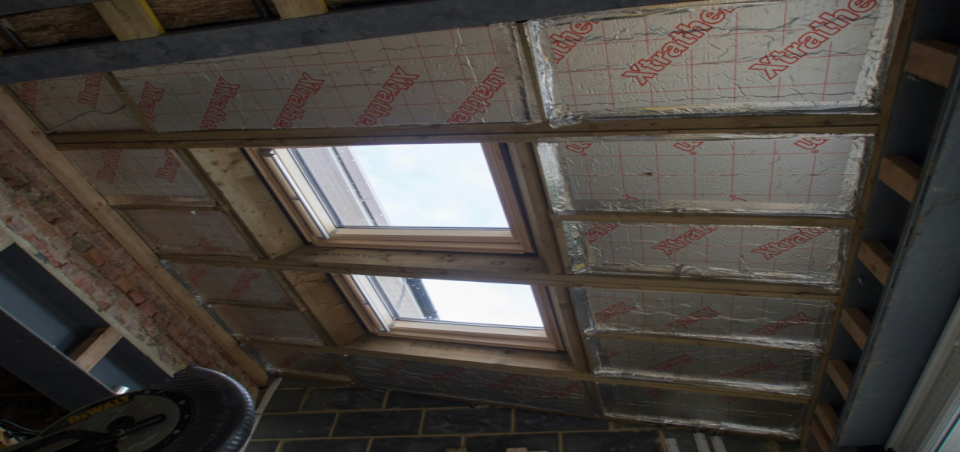How Long Does Spray Foam Insulation Last?
- Innovative Insulation

- Jul 25, 2025
- 4 min read
Some home improvements fade with time, paint chips, grout cracks, fixtures date themselves. But insulation? That’s meant to last. When homeowners invest in spray foam insulation, longevity is one of the first things on their minds. And rightly so. It’s not just about how it performs in the moment, but how it holds up year after year, season after season.
In this piece, we’ll explore how long spray foam insulation truly lasts, what factors can impact its effectiveness over time, and how to ensure you get every bit of value from your investment.
The Lifespan of Spray Foam Insulation
Let’s start with the simple answer: when installed properly, spray foam insulation can last 20 to 30 years or more. In many cases, it outlives the systems it protects - your HVAC, your roofing, and even the structure itself.
Closed-cell spray foam tends to last longer due to its dense, rigid nature. It resists water, holds its shape, and adds strength to whatever surface it adheres to. Open-cell foam, while softer and less water-resistant, also offers an impressive lifespan when kept dry and undisturbed.
Compare that to traditional insulation:
Fiberglass: ~10–15 years (less if it gets damp or shifts)
Cellulose: ~15–20 years (can compress or settle)
Mineral wool: ~30 years (resists moisture, but doesn’t seal air leaks)
So yes, spray foam earns its reputation as one of the longest-lasting insulation materials available.
What Makes Spray Foam Insulation So Durable?
The longevity of spray foam isn’t accidental; it’s baked into the chemistry and application process.
It doesn’t shift or settle. Unlike batts or blown-in insulation, spray foam expands to fill every gap and then hardens in place. This means it won’t sag, compress, or create air pockets over time.
It resists moisture and mold. Especially closed-cell varieties, which can act as a vapor barrier. In areas prone to humidity or occasional leaks, this matters more than most realize.
It bonds tightly to surfaces. Spray foam sticks - permanently. That adhesion makes it less susceptible to damage from vibrations, movement, or everyday wear and tear.
Factors That Can Shorten Its Lifespan
Even the most durable materials need the right conditions to thrive. Here’s what can compromise spray foam’s performance:
Improper installationIf it’s not applied at the correct temperature, or if layers are too thick or thin, curing can fail. The foam may crack, peel, or never fully harden. This is why hiring a seasoned pro is essential.
Water exposure (for open-cell)Open-cell spray foam is breathable, which is great in some applications, but if it’s installed in an area with persistent leaks, it can absorb moisture and degrade over time.
UV exposureSpray foam should always be covered (with drywall, sheathing, etc.). Prolonged sunlight can cause it to yellow, crack, or crumble.
Rodents or pestsWhile spray foam isn’t a food source, rodents will burrow into just about anything for warmth. Sealing your home properly and doing routine inspections helps prevent this.

Maintenance Tips for Longevity
Spray foam is famously low-maintenance, but not maintenance-free. A little attention goes a long way.
Inspect annually, especially in attics and crawl spaces. Look for signs of moisture, damage, or discoloration.
Repair any water leaks promptly to protect open-cell foam from saturation.
Don’t drill or cut into foam unless you’re certain of what lies behind it.
Work with professionals when remodeling. Improper removal or patching can lead to new air gaps.
If something feels off, your utility bills creep up, or parts of your home start feeling drafty again, it may be worth calling your insulation contractor for an inspection.
Does Spray Foam Degrade Over Time?
It’s a fair question. After all, even stone wears down eventually.
Spray foam doesn’t “degrade” in the traditional sense. It doesn’t rot, doesn’t break down chemically, and doesn’t settle like cellulose. But it can lose some of its insulating performance if exposed to the elements or if its protective barrier is compromised.
Signs that it may be aging include:
Visible cracking or crumbling
Air drafts in areas previously well-sealed
Musty odors (which could indicate hidden moisture)
Still, these issues are rare. In well-maintained homes with professional installs, spray foam insulation has been known to last 40 years or more, far longer than building codes require.
Can Your Spray Foam Insulation Be Replaced or Repaired?
Yes. Although it’s long-lasting, spray foam can be cut, patched, or topped off if necessary.
For minor damage (like a drilled hole), a small repair kit or fresh application by a pro can fix it.
For larger issues (such as improper curing or mold intrusion), it may need to be removed and replaced in sections.
If you’re planning a remodel and aren’t sure whether your existing spray foam will be affected, have your contractor evaluate it. In most cases, it can be protected during construction and left untouched.
Environmental Impact Over Time
One of the quiet benefits of long-lasting insulation is the reduction of materials sent to landfills. Spray foam’s longevity reduces the need for replacement, and its tight seal lowers energy consumption for years to come.
That said, choosing a low-GWP (global warming potential) formula makes a big difference. Ask your contractor about environmentally responsible options, such as HFO-based foams or water-blown products.
So - How Long Will It Last in Your Home?
If installed with care and maintained properly, spray foam insulation will be one of the longest-lasting systems in your home. It’s built to stay put, perform well, and age gracefully with your house.
Think of it not just as insulation, but as an investment in the quiet, comfortable, efficient home you want, now and well into the future.
Do you have questions about your current insulation or are you considering making a change? Call Innovative Insulation at (845) 319-9169 or visit our website to schedule your free consultation.







Comments